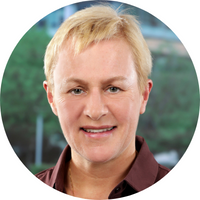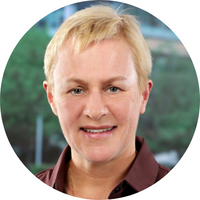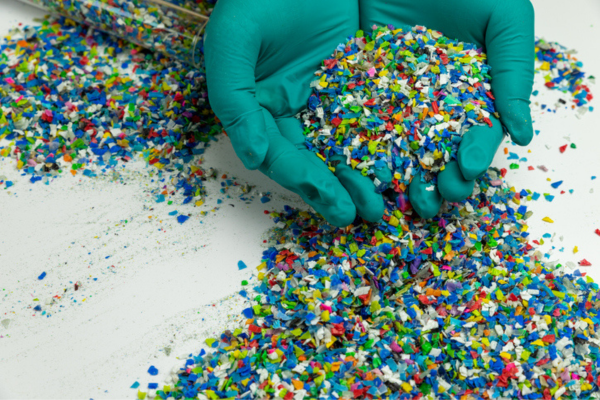
Key Takeaways:
- Margaret Faul shares her opinion on gender diversity
- Faul’s perspective on what it takes to be a successful team leader
- Non-technical skills Faul values the most
In February 2019, Organic Process Research and Development (OPR&D) published an article you co-wrote with Rebecca Ruck titled “Gender Diversity in Process Chemistry.” It was the third most-read paper and the most-read editorial published that year in OPR&D. How did this issue of gender diversity come to be so important to you?
Throughout my career in the pharmaceutical industry, I have seen tremendous advances in science, the complexities of the modalities we pursue, and the speed at which we commercialize innovative medicines to patients. However, during this time, the number of women and minorities in process chemistry has remained low (<20%). A culture of Diversity and Inclusion is important for us to achieve “excellence” in our field since it expands our leadership experiences and enables different approaches to solve problems.
Although this topic has certainly been debated for many years, Rebecca Ruck (Merck, Inc) and I felt that to bring this topic forward it was time to generate the data to allow for broader discussions within the process chemistry community to determine how to address this issue. Our article was published in Organic Process R&D and we are very grateful to Kai Rossen, editor of that Journal, for his support of the publication.
How would you characterize the response you and Rebecca received from this article?
We received an overwhelming positive response to our article as acknowledged by the fact that it was the most read editorial in Organic Process R&D in 2019. Feedback through email, conferences and from our industry peers acknowledged that the article allowed them to have broader discussions within their teams to address the topic of gender diversity.
The data provided on women presenters at conferences, women as primary authors of publications and the percent of women in process chemistry groups highlighted the low number of women in the field of process chemistry. Perhaps more importantly, we identified opportunities to “bend this curve” through participation in mentorship and sponsorship programs, and volunteering to be role models, since a woman’s likelihood of success in her scientific career increases with the number of female scientists to whom she is exposed.
Building on the momentum of this article and a partner article on “Medicinal Chemistry: Where are all the Women” by Donna Huryn, Wendy Young and Maria Bolognesi, an innovative group of chemists (Rebecca Ruck, Donna Huryn, Lara Kallandar, Mary Watson, Ellie Cantor, Kimberly Stewart, Stefan Koenig, Annaliese Franz and I) organized the Empowering Women in Organic Chemistry (EWOC) Conference.
We held our first successful conference in Philadelphia in 2019 and the second “virtual” conference with over 600 global participants will be held this month - Check it out! Rebecca and I are also scheduling a ‘2-year update’ to our editorial that will come out in the March 2021 issue of Organic Process R&D, in a special issue featuring ‘Women in Process Chemistry,’ which is exciting!
Finally, the overwhelming positive response to Sarah Reisman, as the first recipient of the Margaret Faul Award for Women in Organic Chemistry, is a measure of the need for these types of programs and the opportunities to recognize the impact of women in our field.
Are you seeing improvement in the ability of women and minorities to obtain positions in upper levels of management? And if so, what’s responsible? What else can be done to accelerate progress in this area?
I have seen more women promoted to leadership positions across organizations, which is a very positive change. This has been enabled by the formation of several Diversity and Inclusion initiatives across our industry that have raised the awareness around developing an inclusive culture that allows all employees, especially women, to achieve their full potential.
Programs that support the mentorship and sponsorship of minorities have also been important, allowing seasoned leaders to contribute to staff engagement and development, thereby fostering an environment where networking and exposure to upper management can contribute to retention. The fact that these conversations are now open and occurring daily has been key to support the career development of our women scientists.
That being said, there is more work to be done. We need to support and show the value of science to our undergraduate and graduate minority students. We need to provide them forums and role models that they can see and approach to learn how to navigate their careers. As female leaders, we need to share our experiences, through excellent articles like this, on how to successfully balance career and family, and most importantly, provide them a voice in the room as career and promotion topics are being discussed.
In part, you are in the business of leading teams at Amgen. What makes for a successful leader of teams?
The opportunity to build, develop and lead teams is one of the most rewarding aspects of my job. Supporting the next generation of leaders and watching them learn and evolve their understanding and passion for drug development and advancing innovative medicines to patients is the reason I go to work every day. For successful leadership, many skills are required but the ones that are most important to me include:
- We must be able to lead and develop a vision and strategy for an organization, and share it with our employees, so that it inspires them to follow and be part of that vision.
- Every employee is important, and they all have their personal stories; one of the most important aspects of leadership is connecting with the employees and building a personal relationship that makes them feel identified and valued. We need to build relationships with our teams so that they are excited to go to work and develop a sense of belonging in the workplace.
- It is important to have the trust and respect of your employees; making them feel part of the team and aligned with the organization’s vision allows them to feel open to communicate their ideas and challenges. The best organizations are those where the teams work together to deliver to the business.
- Take the time to recognize and appreciate staff. These days, with so many commitments, we are all so busy that taking the time for a simple “thank you” can be missed. So, keep it simple and recognize accomplishments as they happen. That way, your team knows you support them and their careers.
Overall, I am excited about where our industry is going and the opportunities that lie ahead of us. It's my job as a leader to instill that same excitement and passion within others.
How have your parents influenced your leadership style?
I was very driven to advance my education from an early age. To support me, my parents were committed to ensuring that I had the right education, breaking down barriers when required, to ensure I had the opportunities to take the advanced science and math classes I wanted to study. Thus, it is important for me to ensure that staff have the right opportunities to be successful.
My father was a true gentleman. I had the opportunity to work with him for a few summers during college. I was always amazed at how he knew everyone he worked with, on both a personal and professional level. He had immense trust and respect of his staff, and they of him, and those relationships survived long past his retirement. I have taken these values of trust, respect, openness and opportunity instilled in me and I am committed to demonstrate them with my teams every day.
What is one area where universities are highly successful in preparing chemists for employment in the pharma industry? And what is one area where universities can improve?
Universities provide an outstanding education in the scientific disciplines and in organic chemistry, and this is evident in the students that we hire. An area for improvement is building and developing the leadership skills, and nurturing different styles of leadership, to be more inclusive of women and minorities.
You have spent 17 years at Amgen. At what point in your career did you realize that you would be interested in a VP-level job? What led you to that realization?
Early in my career, I was focused on building my understanding of drug development and advancing molecules through commercialization. When I started at Amgen almost 17 years ago, I was excited by the opportunity to expand its small molecule drugs substance capabilities, and had not thought much about my long-term career plans.
However, through the years, as I was provided different career opportunities that expanded across both small molecules and biologics, I invested more time in mapping out my career development plan. With each role I sought to expand my knowledge, learn new skills and contribute across the breadth of process development and operations. I have been very fortunate to have had good mentors and sponsors who have supported me throughout my career, had faith in my abilities, stretched me in areas I did not think possible and supported my success. At Amgen, in my current role as vice president, I am privileged to have the opportunity to share my love of science with many teams and to develop the next generation of scientists and leaders.
What is the one personality trait that has been most instrumental in your career success?
I would have to say determination, focus and the drive to be the best that I can be. My father always said, “If you are going to do something, do it right.” I am committed to work hard and do my best, do what is right for my family, Amgen and the patients we serve.
Among your scientists at Amgen, what non-technical skills do you most highly value?
Process Development, which is the art of converting molecules into medicines, is an increasingly complex business that requires the partnership and collaboration of a broad and diverse team, including manufacturing, regulatory, clinical, quality, and supply chain -- to mention a few. Thus, one of the key attributes for success is “collaborate, communicate and be accountable”.
Our scientists need to be able to seek input and involve key stakeholders in important decisions. In addition, they need to be able to understand what is required from each organization and to be open to welcoming diverse opinions, and driving to decisions that support the successful advancement of our molecules. They also need to be able to clearly communicate decisions and rationale effectively, and when a decision is made, be accountable for implementing the decision rapidly. Obviously, this is not always easy, but a “One Amgen” approach ensures success for all, and when a molecule is successfully launched, a win for patients.
According to a Thieme Chemistry post, you are committed to instilling a green chemistry culture at Amgen focused on the “implementation of greener and more sustainable chemical processes towards the development of novel drug substances.” What are the biggest challenges you are confronting in this area? And how would you assess Amgen’s overall progress to-date?
The implementation of greener and more sustainable chemical processes towards the development of novel drug substances is becoming a standard part of our business. However, one of the biggest challenges in the area is the increased speed at which we need to develop our medicines, which ultimately reduces the time to optimize our chemical processes. To address this issue and ensure we are successful, we have implemented E-factor measurements early in development, so scientists can understand what are the critical steps that need to be optimized to deliver a green process to the commercial network. At Amgen, we are very strategic and continue to evaluate ways to successfully advance green and sustainable processes.
You grew up in Ireland and attended school there until 1987 when you left to pursue your PhD at Harvard. What sticks out in your mind during those early days in Cambridge, as you transitioned to living and studying in the U.S.? What part of Ireland would you like to have with you in California?
Moving from Dublin, Ireland to Cambridge, MA was very exciting. Boston is a great city and I truly loved exploring the many aspects of the Boston lifestyle. However, moving to a city where I did not know anyone was a challenge. I was fortunate to have family visit regularly and a great supervisor in Professor David Evans, who in addition to providing me an excellent education in synthetic chemistry, he and his wife Sally made me feel at home, and that support network was very important. Also having grown up in Ireland, I was very much a “meat and potatoes” type of person, and I think Dave enjoyed the challenge of introducing me to the variety of American cuisine in the different restaurants around Cambridge!
Obviously the part of Ireland I missed the most and which would be great to have close is my family, but after that I have to go for the Irish desserts…I have a sweet tooth and love méringue, strawberries, apple tart and cream, something which cannot be equaled in the US. If you visit Ireland, head to the bakeries…there are many and you will quickly know what I mean!

Margaret Faul is a vice president in Process Development at Amgen. She leads the Drug Product Technologies organization with responsibility to develop and advance Amgen’s drug product portfolio across all stages of development from preclinical to commercial, in addition to supporting Amgen’s commercial products. Margaret grew up in Ireland and obtained her PhD from Professor David A. Evans at Harvard University.
Throughout her career, Margaret has invested significantly in supporting the external scientific community. She is vice chair of the International Consortium for Innovation and Quality in the Pharmaceutical Industry and past chair and founding member of the Enabling Technologies Consortium. Margaret has a strong publication record being an author/co-author of more than 150 peer reviewed publications and has served as a symposium organizer and session chair for several major process chemistry events. She is currently an Associate Editor for Organic Letters and member of the Editorial boards for Science of Synthesis, Organic Synthesis, Synthesis and SynLett and Organic and Biomolecular Chemistry.
Margaret has received numerous awards in recognition of her leadership including the Earle B. Barnes Award for Leadership in Chemical Research Management from Dow Chemical Company, American Chemical Society and a Healthcare Businesswomen’s Association Rising Star Award. In 2020 she was elected to the National Academy of Engineering.
In partnership with Thieme and Science of Synthesis Margaret sponsors the “Margaret Faul Women in Chemistry Award,” the first international award of its kind, to recognize the outstanding achievements of young women in the first 15 years of their career to organic chemistry.
This article has been edited for length and clarity. The opinions expressed in this article are the author's own and do not necessarily reflect the view of their employer or the American Chemical Society.
Copyright 2022 American Chemical Society (All Rights Reserved)













